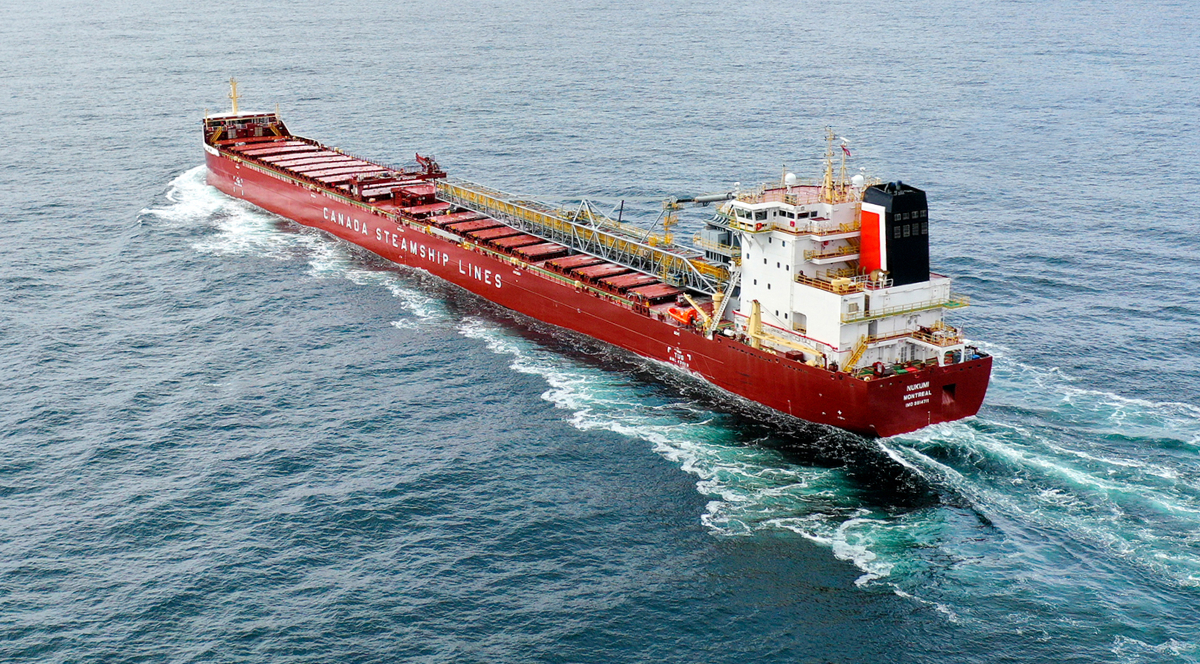Biofuel struggles to gain traction in the Americas
Biofuel bunkering in the Americas is off to a slow start, with high costs and patchy supply networks stifling adoption in the region.
 PHOTO: Canada Steamship Lines has bunkered B100 regularly in the Greak Lakes region in Canada. CSL
PHOTO: Canada Steamship Lines has bunkered B100 regularly in the Greak Lakes region in Canada. CSL
While some ports offer biofuel blends, infrastructure remains limited compared to that of conventional fuels. Supply is confined to a few locations, and logistics often depend on trucks or third-party arrangements rather than dedicated facilities or barges. As a result, demand is negligible, suppliers and traders said.
High costs have hindered uptake in the region. In Houston, B30-VLSFO made from non-crop feedstocks is priced at $792/mt, compared with $696/mt in Rotterdam, where HBE credits apply. In Singapore, B24-VLSFO, the most commonly sold bio-blend, is priced around $660/mt, benefiting from its proximity to and abundant supply of Chinese used cooking oil, which helps drive down costs.
The lack of subsidies and access to sustainable feedstocks leaves Houston at a price disadvantage.
Shell supplies B30-LSMGO blends in Houston and Bolivar Roads and offers biofuel in New Orleans and New York. Bunker supplier Stone Oil offers B20 and B30 blends derived from soy, tallow, and used cooking oil (UCO) in the US Gulf Coast. Despite these efforts, bio-bunker uptake remains marginal.
Shell is focusing on long-term contracts rather than short-term spot deals, signaling a commitment to biofuels, but also a recognition that uptake will take time. “We are focusing on term deals for biofuels rather than spot sales,” a Shell representative said.
“Petrobras at Rio Grande, some suppliers at Colombia, and Houston have biofuel blends, but there’s no firm interest so far,” a trader said.
Canada has seen limited biofuel activity centered on the Great Lakes. Canada Steam Ship Lines (CSL) operates some of its ships on B100 (100% biofuel) and is partnering with Canada Clean Fuels to develop a terminal at Port Colborne. Supplies in Ontario ports rely on truck deliveries, with bio-blends ranging from B5 to B100 available.
South America is seeing even slower demand. In Colombia, Monjasa supplies B24-VLSFO and B30-VLSFO in Cartagena. In Argentina, Agunsa offers B30-VLSFO in upriver ports, but no stems have been booked yet. At $1,190/mt for B30-VLSFO compared to $550/mt for pure VLSFO in Buenos Aires, the steep price difference has deterred buyers.
Brazil has made some progress. Petrobras has trialed B24-VLSFO derived from soy and tallow feedstocks at Rio Grande. Meanwhile, suppliers like Bunker One and Acelen plan biofuel bunkering off Sepetiba, though no launch date has been set.
“There is no great demand for the immediate future,” Stone Oil’s chief operating officer Anthony Odak told ENGINE. “Some clarity is needed on regulations, but we do expect marginal demand growth by mid-2025.”
The market’s slow development reflects deeper challenges, including the high cost of biofuels, patchy infrastructure, and regulatory uncertainty. Despite interest growing, biofuel bunkering remains a niche offering across the Americas.
By Debarati Bhattacharjee
Please get in touch with comments or additional info to news@engine.online






